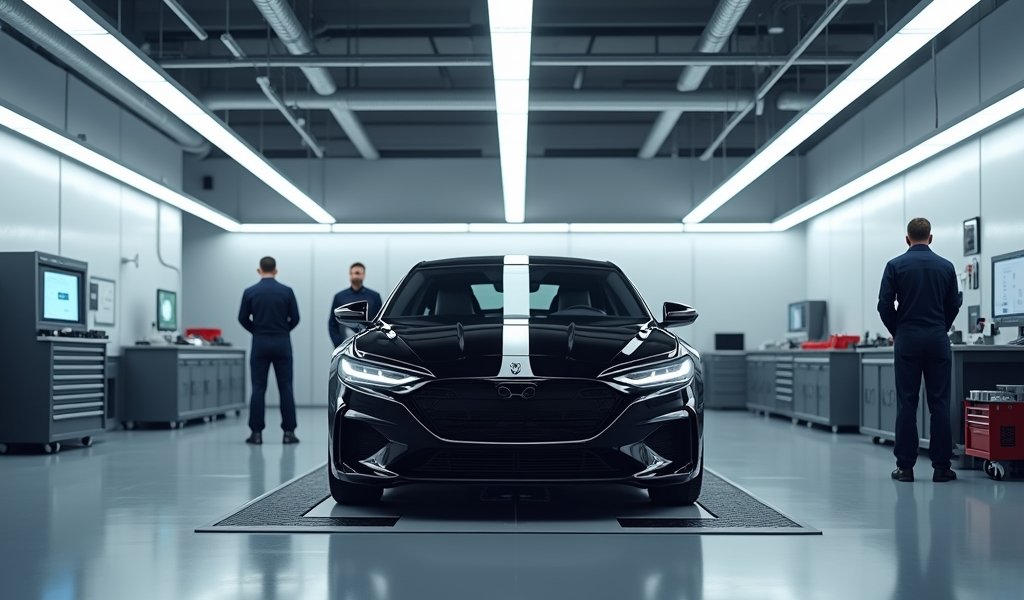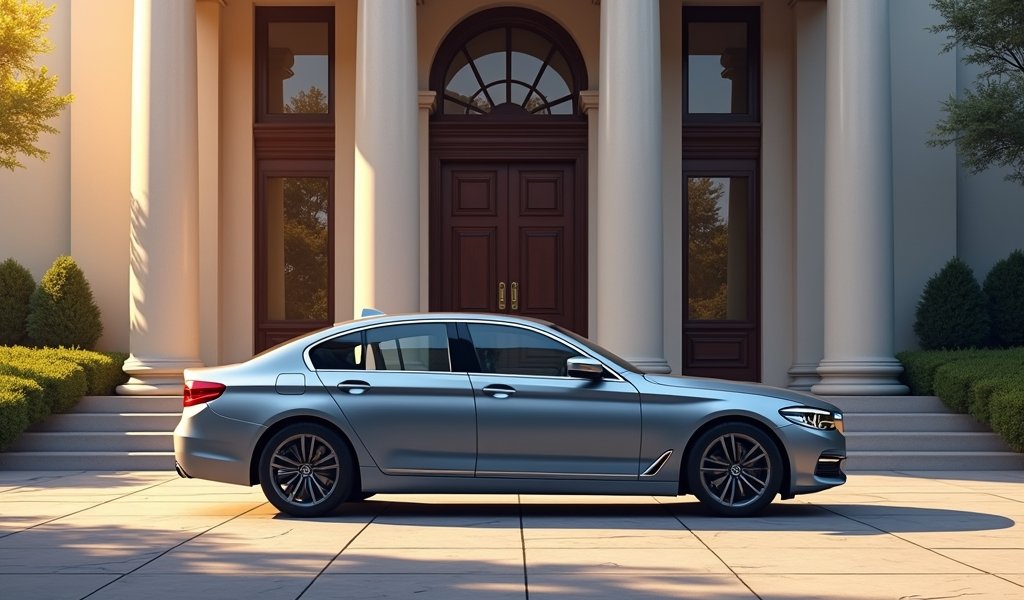Overview
The article provides a detailed guide to finding the best auto loan providers in 2023, comparing top banks (Capital One, Bank of America, LightStream, PNC Bank, and Chase) and credit unions while explaining key considerations like interest rates, loan terms, and pre-approval benefits. It offers tailored advice for different credit situations and negotiation strategies to help readers secure favorable financing terms regardless of their credit profile.
Table of Contents
- Understanding Auto Loans: The Basics
- Factors to Consider When Choosing a Bank for Auto Loans
- Top 5 Banks for Auto Loans in 2023
- Credit Unions vs. Traditional Banks: Which is Better for Auto Loans?
- The Pre-Approval Process: Getting a Head Start
- Financing Options for Different Credit Situations
- Tips for Negotiating the Best Auto Loan Terms
- Conclusion
- Frequently Asked Questions
Understanding Auto Loans: The Basics
Looking for the best banks for auto loans can feel like searching for a needle in a haystack, can’t it? I’ve been there, and I know it can be overwhelming. Whether you’re eyeing that sleek new sedan or a reliable used SUV, finding the right financing option is crucial to making your car dreams come true without breaking the bank.
Auto loans are essentially financial products designed to help you purchase a vehicle when you don’t have the full amount in cash. They work by having a lender—typically a bank, credit union, or online financial institution—provide the funds you need to buy the car. You then repay this amount, plus interest, over a predetermined period, usually ranging from 24 to 84 months.
The interest rate you’ll pay depends on several factors: your credit score, loan term, whether the vehicle is new or used, and the lender’s policies. This rate is essentially what the lender charges you for borrowing their money, and it significantly impacts your monthly payments and the total cost of your loan.
There are two main types of auto loans you’ll encounter. First, there’s the direct lending option, where you obtain financing directly from a bank or credit union before shopping for a car. This gives you the advantage of knowing exactly how much you can afford and securing pre-approval online before hitting the dealership.
The second type is dealership financing, where the dealer arranges financing for you through their network of lenders. While convenient, this option sometimes comes with higher interest rates, as dealers may mark up the rate to earn a commission.
Factors to Consider When Choosing a Bank for Auto Loans
Not all auto loans are created equal, and the same goes for the banks that offer them. When shopping around for the best banks for auto loans, several key factors should influence your decision.
Interest rates are usually the first thing most people look at, and rightfully so. Even a difference of 1-2 percentage points can translate to hundreds or thousands of dollars over the life of your loan. According to a Federal Reserve report, the average auto loan interest rate for a 60-month new car loan was 7.03% in the first quarter of 2023.
Loan terms are another crucial factor. While longer terms (72-84 months) might seem attractive because they lower your monthly payment, they often come with higher interest rates and could leave you owing more than the car is worth as it depreciates. The sweet spot for most borrowers is usually a 48-60 month term.
Don’t overlook fees and additional costs either. Some lenders charge origination fees, prepayment penalties, or application fees that can significantly increase the overall cost of borrowing. Always read the fine print and ask for a complete breakdown of all fees before committing.
Customer service quality varies widely among lenders. Look for banks with responsive support teams, user-friendly online platforms, and transparent communication. Nothing’s worse than dealing with confusing policies or unresponsive representatives when you have questions about your loan.
Flexibility matters too. Some banks offer features like skip-a-payment options during financial hardships, the ability to refinance later, or easy payment methods. These conveniences can make managing your loan much more pleasant over the years.

Top 5 Banks for Auto Loans in 2023
After reviewing countless options and considering factors like interest rates, customer satisfaction, and loan flexibility, I’ve narrowed down the five best banks for auto loans currently available. Each has its own strengths, so you can choose the one that best matches your specific needs.
1. Capital One
Capital One consistently ranks among the best banks for auto loans thanks to its transparent practices and competitive rates. Their Auto Navigator tool lets you pre-qualify without affecting your credit score, showing you personalized rates and available vehicles at participating dealerships. This saves you the hassle of negotiating financing at the dealership.
What makes Capital One stand out is their willingness to work with borrowers across the credit spectrum. While they offer the most competitive rates to those with excellent credit (typically starting around 4.99% for new cars), they also provide options for people with fair credit scores. Their online account management is straightforward, and you can easily track your loan progress through their mobile app.
The application process is completely online, and you’ll usually receive a decision within minutes. Just be aware that their auto loans are only available for purchases from their network of participating dealers.
2. Bank of America
As one of America’s largest financial institutions, Bank of America offers some of the most competitive auto loan rates on the market, particularly for existing customers. Their Preferred Rewards members can receive interest rate discounts of up to 0.50%, which can lead to significant savings over the life of your loan.
Bank of America’s online application process is streamlined and user-friendly. You can apply for pre-approval and receive a decision within minutes, giving you negotiating power when you visit the dealership. They also offer flexible loan terms ranging from 12 to 75 months, though I’d recommend sticking to shorter terms when possible to minimize interest costs.
One standout feature is their support for both dealer purchases and private party transactions. So whether you’re buying from a dealership or that neighbor selling their meticulously maintained sedan, Bank of America has you covered.
3. LightStream
LightStream, the online lending division of Truist Bank, has made a name for itself by offering some of the lowest rates in the industry for borrowers with excellent credit. Their Rate Beat Program even promises to beat any qualifying competitor’s rate by 0.1 percentage points, demonstrating their commitment to competitive pricing.
What truly sets LightStream apart is their unsecured auto loan option for qualified borrowers. This means the loan isn’t tied to the vehicle as collateral, giving you more flexibility. They also offer a remarkably simple online application process with same-day funding in many cases.
LightStream’s customer satisfaction guarantee is another unique feature—if you’re not completely satisfied with your loan experience, they’ll send you $100. Just note that they primarily serve borrowers with good to excellent credit, so if your credit score needs work, you might want to explore other options or consider bad credit car loans near you.
4. PNC Bank
PNC Bank offers competitive rates and exceptional service, especially for borrowers looking to finance eco-friendly vehicles. Their Green Auto Loan program provides rate discounts for qualifying fuel-efficient cars, making it an excellent choice for environmentally conscious consumers.
Existing PNC customers can enjoy relationship discounts of up to 0.50% when they set up automatic payments from a PNC checking account. Their loan terms range from 24 to 84 months, providing flexibility to match your budget needs.
PNC’s CheckReady Loan is worth highlighting—it’s essentially a blank check you can take to the dealership, giving you the convenience of dealer financing with the competitive rates of bank financing. Just be mindful that their best rates are typically reserved for new vehicles and shorter loan terms.
5. Chase Auto
Chase rounds out our list of the best banks for auto loans with their straightforward financing options and widespread availability. As one of the largest banks in the US, Chase provides the convenience of in-person service at thousands of branches alongside robust online tools.
Their auto loan calculator helps you estimate monthly payments based on your desired loan amount, term, and current rates, making budgeting easier. Chase also offers relationship discounts for existing customers, potentially saving you money if you already bank with them.
One significant advantage of Chase is their extensive dealer network—they work with thousands of dealerships nationwide, increasing your chances of finding your perfect vehicle. Their loan terms range from 36 to 72 months, with competitive rates that typically start around 5.29% for well-qualified buyers.
Credit Unions vs. Traditional Banks: Which is Better for Auto Loans?
While we’ve focused on traditional banks so far, credit unions deserve serious consideration when shopping for auto financing. In fact, they often offer some of the most competitive rates in the industry.
Credit unions are member-owned financial cooperatives, which means they’re designed to serve their members rather than maximize profits for shareholders. This fundamental difference often translates to lower interest rates, reduced fees, and more personalized service compared to traditional banks.
According to data from the National Credit Union Administration, credit unions typically offer auto loan rates that are 1-1.5 percentage points lower than those from banks. This difference can save you hundreds or even thousands of dollars over the life of your loan.
However, credit unions do have some limitations. Membership is required, though many have relaxed their eligibility requirements in recent years. Some credit unions have limited branch locations or less advanced online banking platforms compared to major banks.
The application process at credit unions sometimes takes longer, and their hours of operation may be more limited. But for many borrowers, the significant savings and personalized service more than compensate for these minor inconveniences.
Traditional banks offer their own set of advantages: broader accessibility, more advanced digital tools, and often faster approval processes. They may also have more resources to develop convenient features like mobile apps and instant approvals.
The Pre-Approval Process: Getting a Head Start
Before you start test-driving your dream cars, getting pre-approved for an auto loan puts you in a much stronger position. Pre-approval means a lender has reviewed your financial information and agreed to lend you up to a certain amount based on your creditworthiness.
Getting car loan pre-approval online has become incredibly streamlined in recent years. The process typically involves completing an application where you’ll provide details about your income, employment, and debts. The lender then performs a credit check and determines how much they’re willing to lend you and at what interest rate.
Pre-approval offers several significant advantages. First, it gives you a clear budget before you shop, preventing the heartbreak of falling in love with a car you can’t afford. It also strengthens your negotiating position at the dealership—you’re essentially a cash buyer with financing already lined up.
Additionally, pre-approval allows you to compare offers from multiple lenders without impacting your credit score too heavily. Most lenders use a soft credit pull for pre-approval, and multiple auto loan inquiries within a short period (usually 14-45 days) count as a single inquiry for credit scoring purposes.
When you receive a pre-approval offer, pay close attention to the interest rate, loan term, and any conditions attached. Remember that pre-approval is typically valid for 30-60 days, giving you a reasonable window to shop for your vehicle.

Financing Options for Different Credit Situations
Your credit score plays a major role in determining your auto loan options, but the good news is there are financing paths available regardless of your credit situation. Let’s explore the landscape for different credit profiles.
For those with excellent credit (typically 720 and above), you’re in the driver’s seat. You’ll qualify for the lowest interest rates, often several percentage points below average. Lenders will compete for your business, giving you leverage to negotiate favorable terms. You might even qualify for special promotional rates like 0% financing offered by manufacturer financing arms.
If your credit is good (670-719), you’ll still have access to competitive rates, though perhaps not the absolute lowest. Most major banks and credit unions will be happy to work with you, and you’ll have plenty of options to compare.
Those with fair credit (580-669) will face somewhat higher interest rates but still have solid options. This is where shopping around becomes particularly important. Credit unions and online lenders that specialize in fair-credit lending may offer better terms than traditional banks.
When your credit is considered poor (below 580), financing becomes more challenging but certainly not impossible. Specialized subprime lenders and dealerships with “buy here, pay here” financing can help, though rates will be significantly higher. In these situations, making a larger down payment can help offset the higher interest costs and increase your approval chances.
If you’re dealing with credit challenges, no down payment car loans might seem appealing, but they typically come with higher interest rates and stricter requirements. When possible, saving for at least a modest down payment will serve you better in the long run.
Tips for Negotiating the Best Auto Loan Terms
Armed with knowledge about the best banks for auto loans, you’re almost ready to secure your financing. But before you sign on the dotted line, let’s discuss how to negotiate the most favorable terms possible.
First, do your homework. Enter negotiations with a clear understanding of current average interest rates for someone with your credit profile. Resources like Bankrate provide updated rate information that can serve as your benchmark.
Always get multiple quotes—at least three from different lenders. This gives you leverage to ask your preferred lender if they can match or beat a competitor’s offer. Many lenders have some flexibility in their rates, especially for well-qualified borrowers.
Focus on the total cost of the loan, not just the monthly payment. Dealers sometimes emphasize low monthly payments while extending the term, which increases the total amount you’ll pay over time. Instead, negotiate based on the loan’s APR and total cost including interest.
Be prepared to walk away. This is perhaps your strongest negotiating tool. If a lender knows you’re willing to take your business elsewhere, they’re more likely to offer their best terms.
Consider the timing of your purchase. Many banks and dealerships have end-of-month or end-of-quarter sales quotas, making them more willing to offer favorable terms to close a deal. Similarly, shopping during major sale events like Black Friday or year-end clearances might yield better financing offers.
Don’t be afraid to ask directly for better terms. Request a waiver of certain fees, a lower interest rate, or other concessions. The worst they can say is no, and you’d be surprised how often a simple ask yields positive results.
Conclusion
Finding the best banks for auto loans doesn’t have to be a daunting process. By understanding the basics, comparing top lenders, and knowing how to negotiate effectively, you can secure financing that fits both your budget and lifestyle.
Remember that each of the top five banks we’ve explored—Capital One, Bank of America, LightStream, PNC Bank, and Chase—offers unique benefits that might make them the perfect fit depending on your specific situation. Meanwhile, credit unions remain excellent alternatives that often provide more favorable rates and personalized service.
Your credit situation shouldn’t deter you from seeking financing options. Whether you have pristine credit or are working to rebuild it, there’s likely a lender willing to work with you. The key is to shop around, compare offers, and negotiate confidently.
Getting pre-approved puts you in a stronger position and helps you understand exactly what you can afford before falling in love with a vehicle. And when it comes time to finalize your loan, don’t hesitate to negotiate for better terms—a little effort here can save you significant money over the life of your loan.
Auto financing is a major financial commitment, but with the right lender and terms, it can be a manageable one that gets you behind the wheel of the car you need without unnecessary financial strain. Take your time, do your research, and drive away with both a great vehicle and a financing package you can feel good about.
Frequently Asked Questions
What credit score do I need to get the best auto loan rates?
Generally, a score of 720 or higher will qualify you for the best auto loan rates. Lenders consider scores above 670 as “good” and may still offer competitive rates.
Is it better to finance through a bank or the dealership?
Financing through a bank typically offers lower interest rates and more transparent terms. Dealership financing provides convenience but often comes with marked-up rates unless there are special manufacturer incentives.
How long should my auto loan term be?
The ideal auto loan term is 48-60 months to balance affordable monthly payments with reasonable interest costs. Longer terms mean lower monthly payments but higher total interest paid.
Can I get an auto loan with no down payment?
Yes, no down payment auto loans exist, especially for borrowers with good credit. However, putting money down reduces your loan amount, may lower your interest rate, and helps avoid being “upside-down” on your loan.
Should I pay off my auto loan early if I can afford to?
Paying off your auto loan early can save you money on interest if your loan doesn’t have prepayment penalties. Check your loan agreement first to confirm there are no early payoff fees.

